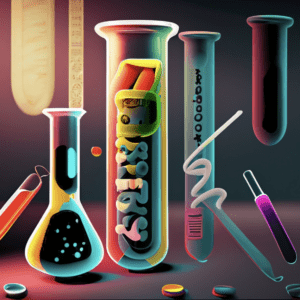Exciting Careers Advancing Science
Biotechnology and pharmaceutical companies are at the forefront of developing innovative medicines, therapies, and technologies that save lives. Both offer intellectually stimulating careers for scientists looking to apply their knowledge beyond academia. While the overarching goals are similar, the cultures, science, and career paths can differ.
Biotech Fosters Innovation
Biotech firms are pioneers, pushing scientific boundaries to uncover new biological insights. Scientists enjoy academic-like freedom to follow promising leads, often in start-up environments enriched by venture capital and collaboration. Biotechs tackle diverse challenges, from engineering synthetic biology to honing CRISPR gene editing. Teams brainstorm creative solutions and quickly test ideas. Passion for science drives progress more than process.
R&D fuels biotech innovation. Experts estimated that over 4,100 biotechs globally spent \$35B on R&D in 2021. Most biotechs, over 65%, focus on human therapeutics. Others specialize in Ag-bio, industrial/environmental, bioinformatics, or medical devices. Leading biotech hubs are clustered in California, Massachusetts, Europe, and Asia.
Careers span research, clinical trials, manufacturing, data science, engineering, business development, and executive leadership. Scientists usually need a Ph.D. or postdoc training to land biotech research jobs. Exceptional opportunities for advancement and leadership roles exist for those who demonstrate scientific vision and management skills. Biotech offers a collaborative, interdisciplinary environment to make breakthrough discoveries.
Pharma Relies on Research and Rigor
Pharmaceutical powerhouses excel at meticulous, large-scale drug development fueled by R&D spending topping $90B annually. Pharma undertakes the lengthy, expensive clinical trials needed to achieve FDA approval for new drugs. Their manufacturing and distribution prowess brings remedies to millions globally.
The biggest pharma companies are multinational giants employing tens of thousands. Most maintain a mix of legacy products and innovative pipelines. Pharma cultures tend to be more formalized with codified processes guiding decision-making. Roles are specialized with strict protocols to ensure safety and compliance.
Pharma scientists enjoy less flexibility but benefit from vast resources when testing ideas. They gain deep expertise as they systematically tackle focused problems. Leadership opportunities are open to those able to effectively manage complex projects across cross-functional teams.
While not every pharma role requires advanced degrees, Ph.D.s qualify for the most rigorous scientific positions. Postdocs can accelerate hiring and level entry. Pharma offers extensive training to develop world-class scientists. Performance metrics drive promotion timing more than tenure.
Dynamic Careers Advancing Science
Both biotech and pharma offer meaningful careers for scientists to create therapies benefiting humanity. Biotech favors exploratory innovation while pharma rewards methodical discipline.
In biotech, you’ll join visionary pioneers taking scientific risks. Expect a fast-paced, nimble environment with minimal bureaucracy. Pharma provides structured training and refinement of expertise needed for large-scale drug development. You’ll manage multifaceted projects and align manufacturing with market needs.
Biotech promises greater scientific freedom but also financial instability and job insecurity. The odds of successfully commercializing discoveries are lower. Pharma jobs confer financial stability and steady advancement coupled with set processes and systems. The scale can be very large with global reach but also bureaucratic.
Conclusion
Weigh your temperament, skills, and interests when choosing between biotech excitement versus pharma rigor. Both offer satisfying ways to continuously learn and grow in your career while improving healthcare through science.
